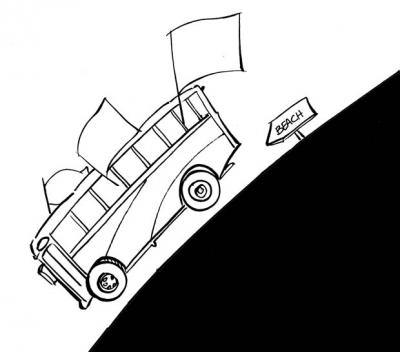The aim is straight-forward. Gather a maximum number of people, bring them to the chosen hotspot, generate huge traffic jams to create a meaningful impact, get an irreproachable sound system with effective microphones (!!!), whip the communication team to a frenzy by making use of social media to document the unfolding of the events, get people to wave flags, cheer, clap and dance, give the fans a wonderful portion of yummy ‘Briani’ to top it off and the battle is already half-won. Of course, prior to that, banners should be hung and posters placarded strategically all over the island to inform people about the juicy details of the meeting, relentless canvassing undertaken to fill the buses which must be free of charge to the fans who are also lavished with free t-shirts. They constitute the true power in the political battle of the crowds, or do they in fact not?
Whatever the political blocks on the scene, it all boils down to the crowd game. This is an intense psychological thriller that attempts to establish a psychosis over the opponents. Propagandist tools such as the local TV station manipulate camera angles to suit the hushed agendas. Crowd estimation is on everyone’s lips after the meetings. It is one of the circumstances where size does matter. The bigger it is, the better apparently. The momentum has to be maintained to keep the size of the following steady. Times are too critical to allow any decrease in size. For that to happen, endless stimulation strategies must be implemented. Press conferences, door-to-door campaigns, release of catchy songs, promises (mostly hollow) of political favours once elected, gifts (not bribes, but real gifts such as foodstuff appreciated by Mauritians, pressure cookers affectionately known as ‘Tempo’) must be in the forefront of the battle where losing can be fatal. ‘Lysol’ which is a brand name of cleaning and disinfecting products, is quite notorious in the political arena, for those whose honour has been jeopardised. So, no-one can afford to put a foot wrong.
Whether in Quatre-Bornes or in Vacoas yesterday, the protocol followed has been exactly the same. Enthusiastic crowds have been rallied to hear the leaders take the floor but what about the rhetoric? Are the people really concerned about the content or more about the festive mood, pertaining to the Mauritian folkloric traditions of political meetings? In the midst of the beating of the drums or djembes, politicians who are leaders of the country or who aspire to become future leaders, must make it a moral responsibility to debate intelligently and make valid proposals for the welfare of the country. This is the opportunity for them to acquaint the people better with measures they intend to implement for the benefit of the nation.
However, mudslinging and diatribes against political adversaries seem to be at the heart of the menu. It is akin to toddlers in a play area trying to settle scores with each other, to the amusement of the crowd. To break the monotony and keep the flock awake, many orators attempt to use catchphrases (which they think are funny but which might not necessarily be the case), gesticulate wildly onstage, work their vocal chords to alarming proportions until all is drowned in the euphoria kindled. The past bitterness, scandals, feuds are of course quickly forgotten by politicians of different parties sharing a common stage and who miraculously can kiss and make up countless times at baffling speed. Not surprising when collective amnesia has taken over.
So, the question that begs to be asked is how meaningful are these overhyped political meetings? How much have the people really learnt about the future of their country? When the date of the general elections is still hanging in the balance, who really holds the real power in such gatherings? Is it the political leaders or the hardcore fans? Who is really leading whom?
In the context of the local political meetings, Eleanor Roosevelt’s quote fits in perfectly: “Great minds discuss ideas; average minds discuss events; small minds discuss people.”
The Political Battle of the Crowds
- Publicité -
EN CONTINU ↻


